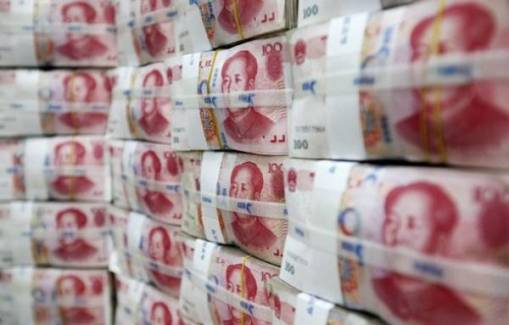Lew: US-China investment deal not nearing completion

The Hill | 07/01/14
Lew: US-China investment deal not nearing completion
By Vicki Needham
Treasury Secretary Jack Lew said Tuesday that the United States and China aren’t prepared to wrap up work on an investment agreement during high-level meetings next week.
Lew said a Bilateral Investment Treaty (BIT) won’t be completed by U.S. and Chinese officials when they meet July 9-10 in Beijing for the latest round of the U.S.-China Strategic & Economic Dialogue.
Even though China agreed last year to change its approach toward the investment treaty, the world’s two largest economies still aren’t in a position to conclude an agreement.
"I think that it’s not realistic to think that there’s going to be a concluded BIT in a couple of weeks,” Lew said during an event with the U.S.-China Business Council in Washington.
"It’s a very long process. We have to remain engaged."
Last year, China agreed to negotiate a BIT that includes all stages of investment and sectors.
But Lew said that the process started with nearly every area on a closed list and with China making few offers to open up investment sectors important to U.S. businesses.
“I think it’s been a slow process," he said.
He said a new list released by Chinese government officials on Monday appears, at first glance, not to include any areas that would provide more market access in areas of interest for U.S. businesses.
"It’s just not a conceptual move to go to an open market,” Lew said. “You actually have to have the open market.”
So, the United States is focusing on access for financial services and other areas in general for U.S. goods and services.
"That’s something we’ll continue," Lew said.
The lack of market access coupled with the desire of U.S. firms to invest in China is further held up by questions about intellectual property protections.
"There’s a concern that if intellectual property rules aren’t followed that the investment becomes a very short-term benefit and then there’s a loss of trade secrets and other things of extraordinarily high value,” Lew said.
“I think the Chinese have focused on this and have taken a number of enforcement actions but what we haven’t seen is a kind of a sustained continuous effort that just makes it the rules of the road."
Lew argued that the two nations are working toward a U.S.-China relationship where China’s business practices reach the standards that "we expect when others do business with us."
"It’s not a straight line that only goes to progress,” he said. “What we have to do is keep reminding each other how we can continue to make progress," he said.
“I’m optimistic that we’re going to be able to make some progress again this year — I don’t believe you ever finish the job, we’re going to keep pushing at it."
Lew said the two-day meeting will include discussions on about 60 issues.
The exchange rate remains a top issue for Lew and the Obama administration, which Lew says stretches beyond politics.
Since 2010, the yuan’s exchange rate has appreciated 14 percent. Lew said it is still undervalued and needs to appreciate more and move toward a market-determined exchange rate.
While he said China has made some moves in the right direction — they have widened their trading band and raised the target rate — more transparency is needed to expose any intervention.
"I think they’ve made some moves in the right direction but we seem to take two steps forward and at least part of a step back," he said.
“But it’s fundamentally not fair in terms of trading practices, which is why we press on it so hard," he said.
He argued that while a continued appreciation of the yuan is important for U.S. businesses and the broader economy, it also is important to China’s growth and its ability to fulfill the principles outlined in the Third Plenum for where they want their economy to go.
"That’s why I’m optimistic we’ll continue to make progress."





